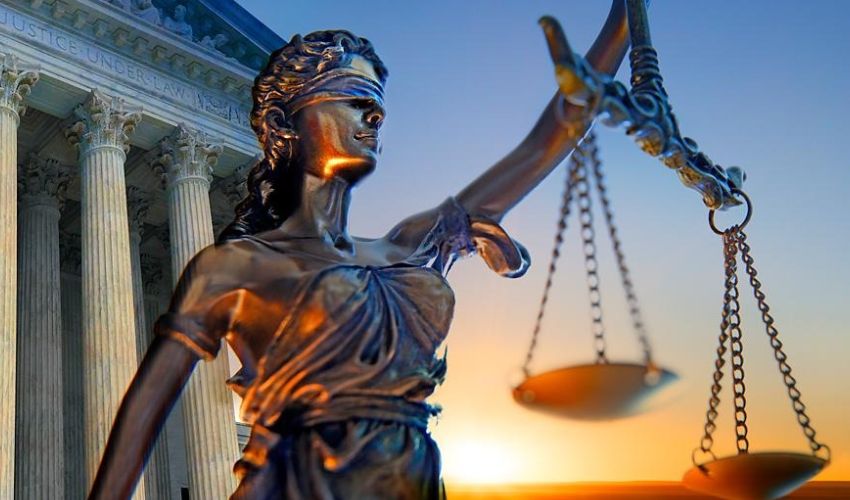“As we mark this International Day of Peace, people and our planet are in crisis. Conflicts driving record numbers of people from their homes. Deadly fires, raging floods, and soaring temperatures. Poverty, inequalities and injustices. Mistrust, division and prejudice. This year’s theme reminds us that peace is not automatic. Peace is the result of action.
Action to accelerate progress towards the Sustainable Development Goals and ensure that no one is left behind. Action to end the war on our planet and its natural gifts. Action to uphold and protect the human rights and dignity of every person — especially as we celebrate the 75th anniversary of the Universal Declaration of Human Rights. Action to use the timeless tools of diplomacy, dialogue, and collaboration to defuse tensions and end conflict. And action for those millions of people living through the horrors of war. Peace is not only a noble vision for humanity. Peace is a call to action. Let us commit to build, drive, and sustain peace for all”.
The United Nations (UN) Secretary-General has conveyed this profoundly meaningful message in honor of the International Day of Peace. The theme for this year, "Actions for Peace: Our Ambition for the #GlobalGoals," is both inspiring and commendable.
On this occasion, I would like to extend my congratulations to all UN agencies operating in Pakistan for their crucial contributions to the welfare of the country's people.
Today, I am compelled to reference a famous saying: "Peace is the product of justice."
In a society marred by injustice, true peace remains elusive. When we examine both peace and the justice system in Pakistan, we can't help but notice that injustice is widespread.
Within the borders of our nation, the pervasive presence of injustice is often identified as the root cause of various misfortunes. Regrettably, the common man's daily existence is marred by a plethora of challenges. Basic necessities that are taken for granted by some – gas, electricity, water, employment, shelter, and justice – are distressingly out of reach for a substantial portion of the population.
This stark disparity becomes glaringly evident as the working class takes to the roadside in search of sustenance, relying on charitable organizations to provide meals for breakfast, lunch, and dinner. Tragically, the growing incidence of suicide casts a shadow, while many others teeter on the edge of despair. Simultaneously, the phenomenon of brain drain is on the rise, draining the nation of its intellectual and creative potential.
Adding to the mounting woes, a recent surge in petrol prices has dealt a severe blow to an already fragile socioeconomic landscape. This increase has inadvertently nurtured an environment conducive to dishonesty and black-market activities. Everyday essentials such as flour, ghee, and oil have been tainted by adulteration and compromised quality. Consequently, a significant portion of the population grapples with hunger, resorting to consuming vegetables grown in contaminated water. Luxuries such as goat meat, fortified foods, fruits, and dry fruits have become distant aspirations for the underprivileged. Furthermore, the quest for justice itself has morphed into an elusive dream.
It is an acknowledged truth that societal injustices foster a host of societal maladies. Notably, women residing in rural and marginalized areas find themselves bereft of access to adequate healthcare facilities. A substantial number of these women face a barrage of challenges, ranging from sexual and physical violence to gender-based and psychological torment.
Additionally, they grapple with various diseases, with malnutrition standing out prominently. This dire situation underscores the deeply rooted corruption that has taken hold within the healthcare sector, contributing to the overall deterioration of conditions.
However, amidst these formidable challenges, it is crucial to pause and reflect. While the circumstances at hand are undeniably grim, they are not insurmountable. On this International Day of Peace, a solemn commitment is called for – a pledge that the flame of humanity burning within each of us shall never flicker or fade.
This year’s theme of the day is a call to action that recognizes our individual and collective responsibility to foster peace. Most importantly the government should take necessary actions to provide instant and free-of-cost justice to the people of Pakistan. NGOs that are working in the field of human rights, legal aid, and strengthening the justice systems can also play their role in making a ‘peaceful environment’.
Nevertheless, in the face of these daunting challenges, it is vital to take a moment and contemplate. Although the current circumstances are unquestionably bleak, they are not insuperable. On this International Day of Peace, we must make a solemn commitment, pledging that the innate humanity within each of us will never waver or dim. This year's theme for the day serves as a call to action, recognizing our shared duty, both individually and collectively, to nurture peace.
Above all, it is imperative for the government to implement immediate and cost-free measures to ensure justice for the people of Pakistan. NGOs operating in the realms of human rights, legal aid, and the fortification of the justice system can also contribute to creating a harmonious environment.



























